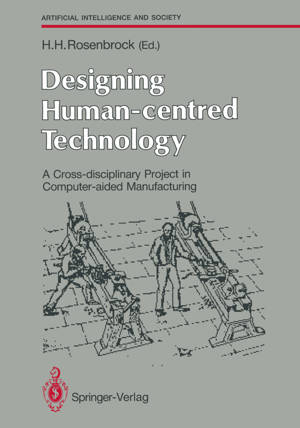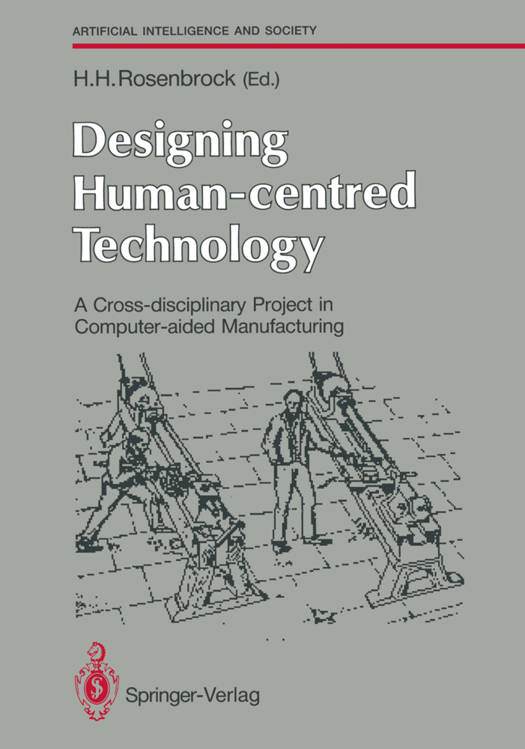
- Retrait gratuit dans votre magasin Club
- 7.000.000 titres dans notre catalogue
- Payer en toute sécurité
- Toujours un magasin près de chez vous
- Retrait gratuit dans votre magasin Club
- 7.000.0000 titres dans notre catalogue
- Payer en toute sécurité
- Toujours un magasin près de chez vous
Designing Human-Centred Technology
A Cross-Disciplinary Project in Computer-Aided Manufacturing
52,95 €
+ 105 points
Description
This second book in our series Artificial Intelligence and Society explores the issues involved in the design and application of human-centred systems in the manufacturing area. At first glance it may appear that a book on this topic is somewhat peripheral to the main concerns of the series. In fact, although starting from an engineering perspective, the book addresses some of the pivotal issues confronting those who apply new technology in general and artificial intelligence (AI) systems in particular. Above all, the book invites us to consider whether the present applications of technology are such as to make the best use of human skill and ingenuity and at the same time provide for realistic and economically sustainable systems design solutions. To do so it is necessary to provide systems which support the skill, and are amenable to the cultures, of the areas of application in question. In a philosophical sense it means providing tools to support skills rather than machines which replace them, to use Heidegger's distinction. The book gives an authoritative account of the University of Manchester Institute of Science and Technology (UMIST) tradition of human-centredness and provides a participatory design ap- proach which focuses on collaborative learning and enhancement and creation of new skills. It also argues that collaboration should be supported by institutions through the creation of supportive infrastructures and research environments. It emphasises the optimisation of practical knowledge with the help of scientific knowledge and rejects the alternative.
Spécifications
Parties prenantes
- Editeur:
Contenu
- Nombre de pages :
- 208
- Langue:
- Anglais
- Collection :
Caractéristiques
- EAN:
- 9783540195672
- Date de parution :
- 07-12-89
- Format:
- Livre broché
- Format numérique:
- Trade paperback (VS)
- Dimensions :
- 170 mm x 244 mm
- Poids :
- 367 g

Les avis
Nous publions uniquement les avis qui respectent les conditions requises. Consultez nos conditions pour les avis.





